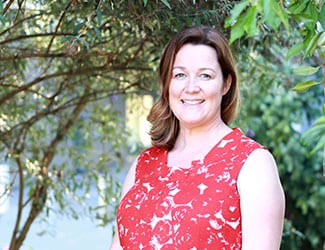

NEWSROOM
More than balance required to make things better
By Dr Janine Swail
“Better the balance, better the world” is the theme for this year’s International Women’s Day1 and it is certainly difficult to disagree with this liberal feminist mantra and #BalanceforBetter.
However, as a critical scholar in the field of women’s entrepreneurship I suggest that ‘balance’ or levelling the playing field is one strategy but it is only a small feat in comparison to changing structural gender inequalities and persistent biases that often remain, even when/if societies do reach gender parity in politics, pay, prestigious job occupations and other societal ‘places’ where masculinity has dominated.
In other words, addressing balance may help achieve equality between men and women as individuals but the more mammoth task is addressing the structural mechanisms – i.e. those that relate to gender bias in the way jobs and activities are evaluated and rewarded in labour markets.
Within entrepreneurship this can be illustrated by looking at the type of start-ups who successfully raise entrepreneurial finance (e.g. angel investment, venture capital) to grow their businesses. There are fewer women entrepreneurs (relative to men) who finance their businesses using entrepreneurial financing strategies. Equally, there are fewer women who occupy corporate roles within venture capital firms or are represented as business angels within entrepreneurial eco-systems globally.
In a recent study, we set out to explore the experiences of women entrepreneurs who were actively seeking equity finance to help fund the growth of their businesses. In addition, we investigated the visibility and role of women as business angels and venture capitalists within entrepreneurial finance eco-systems.
If we simply employed a quantitative ‘balance lens’ to this particular finance eco-system the evaluation would probably read “some improvement, but a long way to go.” Certainly, in our study we spoke to a number of ‘growth-oriented’ women entrepreneurs who all had varying degrees of success with regards to raising finance. Fair to say, this process is ongoing during the life cycle of any entrepreneurial business, but of those who were achieving their current financing goals there were some common threads. Essentially, they were all launching and running start-ups that ‘fitted’ the typical investor criterion such as: meeting an unmet market need; demonstrating high-growth potential; and an eventual (significant) return on investment. Whilst this may seem fairly unsurprising, those start-ups able to satisfy such criteria are located in a fairly narrow niches of high-tech, deep-tech or fin-tech where fewer women can be found.
So if we were to ‘better the balance’ within entrepreneurship, we simply need to encourage more young women to enter these tech sectors; and in turn there will be more women entrepreneurs in this space and subsequently more successful women-owned start-ups receiving entrepreneurial finance – problem solved! But is it…? What about Nora2 who after receiving some initial seed funding for her fem-tech start-up – a wearable device to track fertility was unable to secure follow-on funding despite exhausting all the angel syndicates in her network? Or Ingrid, who was asked after delivering her pitch to a group of angel investors whether she planned to start a family in the near future. Or Gemma, who’s logo and company branding featured pink as a main colour and a throwaway feedback comment from an investor was “there’s a bit too much pink in there for me, I just don’t get it!”
As individual experiences, these scenarios could be minimised as isolated, one-off incidents but after interviewing 40+ women entrepreneurs these insights were far from unique and are indicative of the structural biases that permeate entrepreneurial finance eco-systems.
The reality is that the ambiguity and uncertainty of investing in start-ups promotes risk minimising behaviour where investors put their money into start-ups they identify with, in sectors where they might have prior experience in and in tried and tested business models where return on investment has a higher probability. When the stereotypical investor is often white, male and of a certain age bracket it is little surprise that when women entrepreneurs pitch a business that deviates from the established (masculine) norm they will travel a tougher road to raising finance.
So alongside balance, we need to address bias, be it conscious or unconscious. We need to challenge our entrenched ways of thinking about what start-ups fit the investment mould and address (broken) investment models that promote an aggressive ‘winner takes all’ approach. In doing so, our current finance eco-systems can become more welcome arenas for women entrepreneurs and their businesses.
1 https://www.internationalwomensday.com/Theme
2 Study participant, pseudonym name.
Dr Janine Swail is a senior lecturer in the University of Auckland Business School’s Department of Management and International Business. Her research is in the area of gender and entrepreneurship, focusing on women entrepreneurs at both start-up and growth stages. She has recently completed a study on gender and entrepreneurial finance eco-systems across NZ and UK, the findings of which will be made available soon.
Recent article: Swail, J. and Marlow, S. (2018) ‘Embrace the masculine; attenuate the feminine’ – gender, identity work and entrepreneurial legitimation in the nascent context’ Entrepreneurship & Regional Development 30(1-2) pp.256-282 http://www.tandfonline.com/doi/abs/10.1080/08985626.2017.1406539


By Dr Janine Swail
“Better the balance, better the world” is the theme for this year’s International Women’s Day1 and it is certainly difficult to disagree with this liberal feminist mantra and #BalanceforBetter.
However, as a critical scholar in the field of women’s entrepreneurship I suggest that ‘balance’ or levelling the playing field is one strategy but it is only a small feat in comparison to changing structural gender inequalities and persistent biases that often remain, even when/if societies do reach gender parity in politics, pay, prestigious job occupations and other societal ‘places’ where masculinity has dominated.
In other words, addressing balance may help achieve equality between men and women as individuals but the more mammoth task is addressing the structural mechanisms – i.e. those that relate to gender bias in the way jobs and activities are evaluated and rewarded in labour markets.
Within entrepreneurship this can be illustrated by looking at the type of start-ups who successfully raise entrepreneurial finance (e.g. angel investment, venture capital) to grow their businesses. There are fewer women entrepreneurs (relative to men) who finance their businesses using entrepreneurial financing strategies. Equally, there are fewer women who occupy corporate roles within venture capital firms or are represented as business angels within entrepreneurial eco-systems globally.
In a recent study, we set out to explore the experiences of women entrepreneurs who were actively seeking equity finance to help fund the growth of their businesses. In addition, we investigated the visibility and role of women as business angels and venture capitalists within entrepreneurial finance eco-systems.
If we simply employed a quantitative ‘balance lens’ to this particular finance eco-system the evaluation would probably read “some improvement, but a long way to go.” Certainly, in our study we spoke to a number of ‘growth-oriented’ women entrepreneurs who all had varying degrees of success with regards to raising finance. Fair to say, this process is ongoing during the life cycle of any entrepreneurial business, but of those who were achieving their current financing goals there were some common threads. Essentially, they were all launching and running start-ups that ‘fitted’ the typical investor criterion such as: meeting an unmet market need; demonstrating high-growth potential; and an eventual (significant) return on investment. Whilst this may seem fairly unsurprising, those start-ups able to satisfy such criteria are located in a fairly narrow niches of high-tech, deep-tech or fin-tech where fewer women can be found.
So if we were to ‘better the balance’ within entrepreneurship, we simply need to encourage more young women to enter these tech sectors; and in turn there will be more women entrepreneurs in this space and subsequently more successful women-owned start-ups receiving entrepreneurial finance – problem solved! But is it…? What about Nora2 who after receiving some initial seed funding for her fem-tech start-up – a wearable device to track fertility was unable to secure follow-on funding despite exhausting all the angel syndicates in her network? Or Ingrid, who was asked after delivering her pitch to a group of angel investors whether she planned to start a family in the near future. Or Gemma, who’s logo and company branding featured pink as a main colour and a throwaway feedback comment from an investor was “there’s a bit too much pink in there for me, I just don’t get it!”
As individual experiences, these scenarios could be minimised as isolated, one-off incidents but after interviewing 40+ women entrepreneurs these insights were far from unique and are indicative of the structural biases that permeate entrepreneurial finance eco-systems.
The reality is that the ambiguity and uncertainty of investing in start-ups promotes risk minimising behaviour where investors put their money into start-ups they identify with, in sectors where they might have prior experience in and in tried and tested business models where return on investment has a higher probability. When the stereotypical investor is often white, male and of a certain age bracket it is little surprise that when women entrepreneurs pitch a business that deviates from the established (masculine) norm they will travel a tougher road to raising finance.
So alongside balance, we need to address bias, be it conscious or unconscious. We need to challenge our entrenched ways of thinking about what start-ups fit the investment mould and address (broken) investment models that promote an aggressive ‘winner takes all’ approach. In doing so, our current finance eco-systems can become more welcome arenas for women entrepreneurs and their businesses.
1 https://www.internationalwomensday.com/Theme
2 Study participant, pseudonym name.
Dr Janine Swail is a senior lecturer in the University of Auckland Business School’s Department of Management and International Business. Her research is in the area of gender and entrepreneurship, focusing on women entrepreneurs at both start-up and growth stages. She has recently completed a study on gender and entrepreneurial finance eco-systems across NZ and UK, the findings of which will be made available soon.
Recent article: Swail, J. and Marlow, S. (2018) ‘Embrace the masculine; attenuate the feminine’ – gender, identity work and entrepreneurial legitimation in the nascent context’ Entrepreneurship & Regional Development 30(1-2) pp.256-282 http://www.tandfonline.com/doi/abs/10.1080/08985626.2017.1406539
EMAIL
CIE@AUCKLAND.AC.NZ
POSTAL ADDRESS
THE UNIVERSITY OF AUCKLAND BUSINESS SCHOOL
PRIVATE BAG 92019, AUCKLAND













